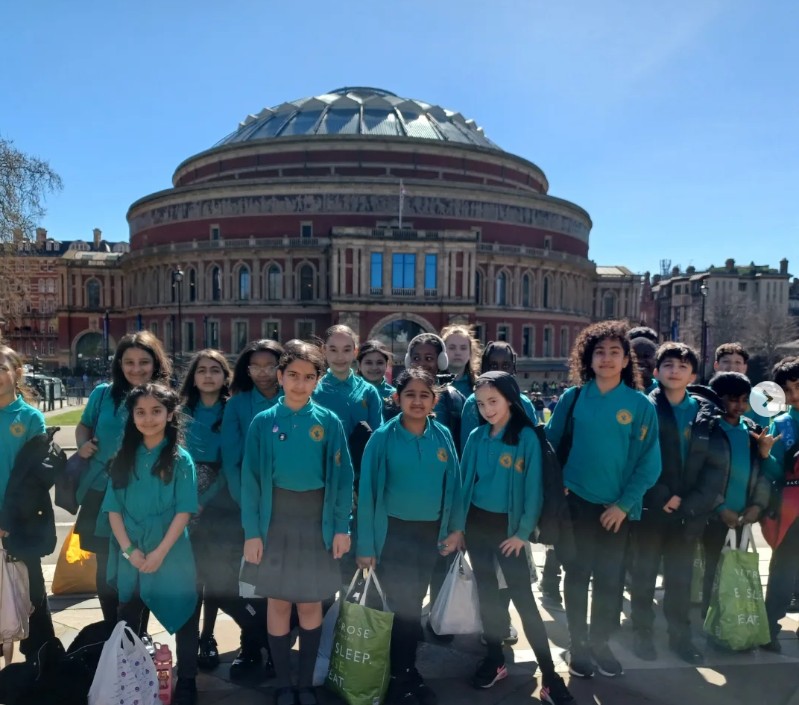Music
 Music is a much loved subject at Dollis.
Music is a much loved subject at Dollis.
Our curriculum is vibrant, inclusive, and rooted in high-quality teaching and hands-on learning, encouraging every child to explore and express their musical creativity.
Through singing, playing instruments, and performing, pupils build a strong foundation of musical knowledge and skills. Our approach nurtures creativity, teamwork, and self-expression, helping children grow in confidence and develop a lifelong appreciation for music.
Performance plays a key role, boosting self-esteem and bringing learning to life through links with drama, history, and global cultures (i.e. geography). Alongside musical technique, children also learn important life skills such as patience, collaboration, and respect for others’ contributions.
Our programme offers personalised and adaptive teaching, with exposure to a wide range of genres and musical traditions from around the world. Music is often woven into other subjects such as History, PE, and PSHE, with opportunities for pupils to explore themes through dance, popular music, and interactive games.
A specialist music teacher leads our curriculum, ensuring consistency and depth across year groups. In Year 4, every child learns to play a musical instrument with 39 weeks of free tuition, culminating in a class orchestra performance — a highlight of the school year and a proud moment for all involved.
Children also explore and train their voices through choir practice, with an annual appearance at the Royal Albert Hall!
Primary Music Curriculum
Whole School Music Curriculum Map
Curriculum information
Dollis Primary Music Development Plan
Music Development Plan summary 2023-24








